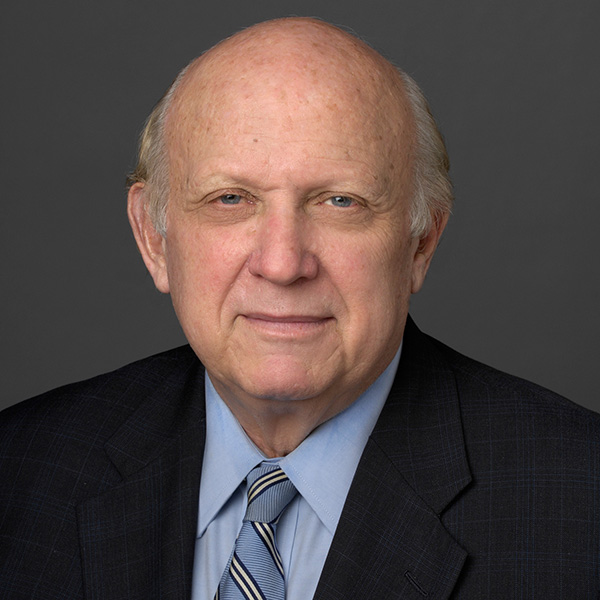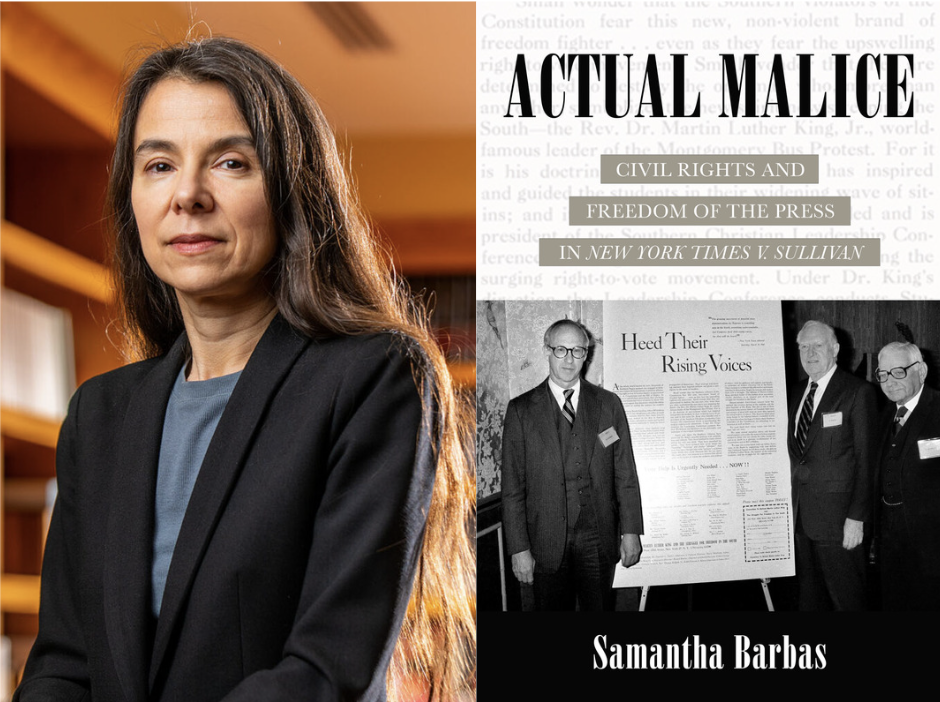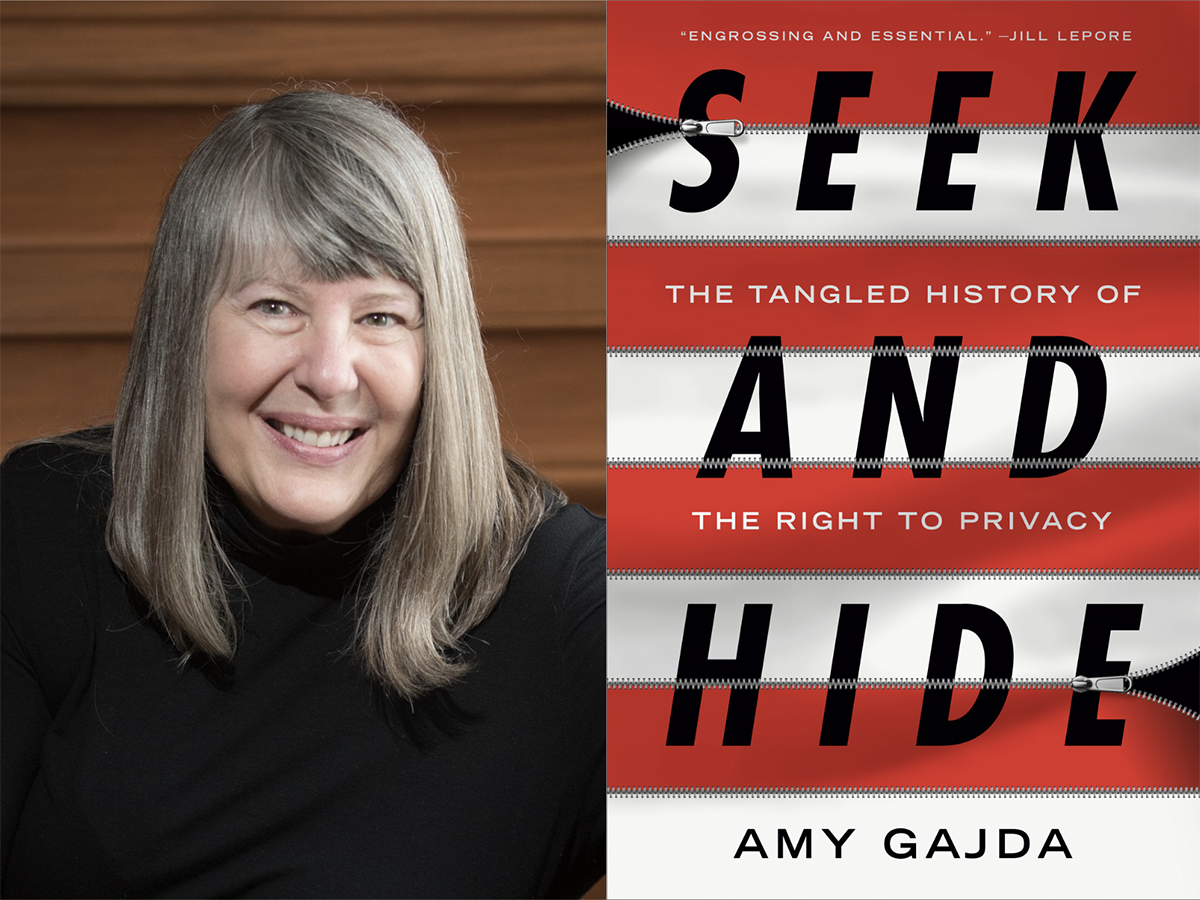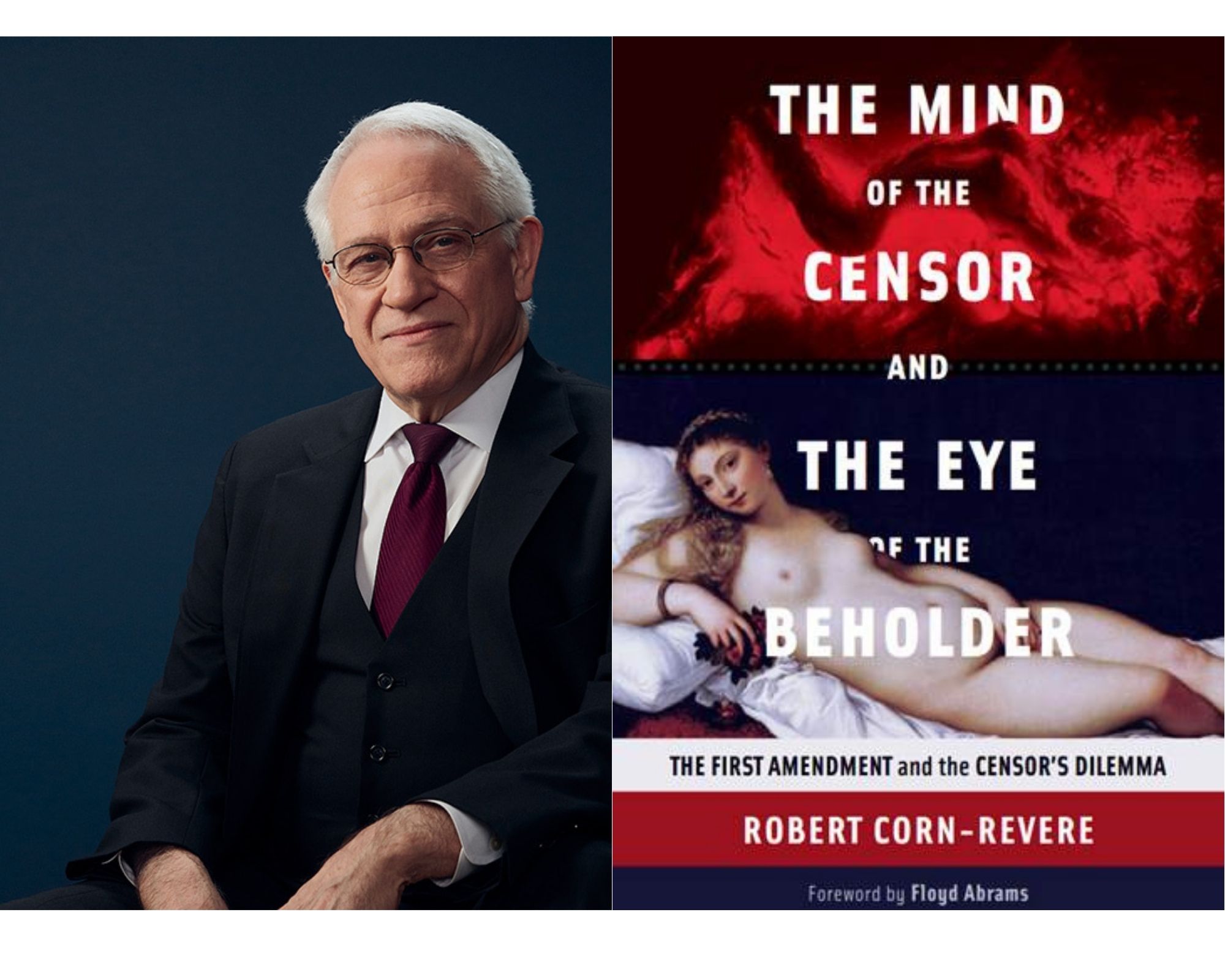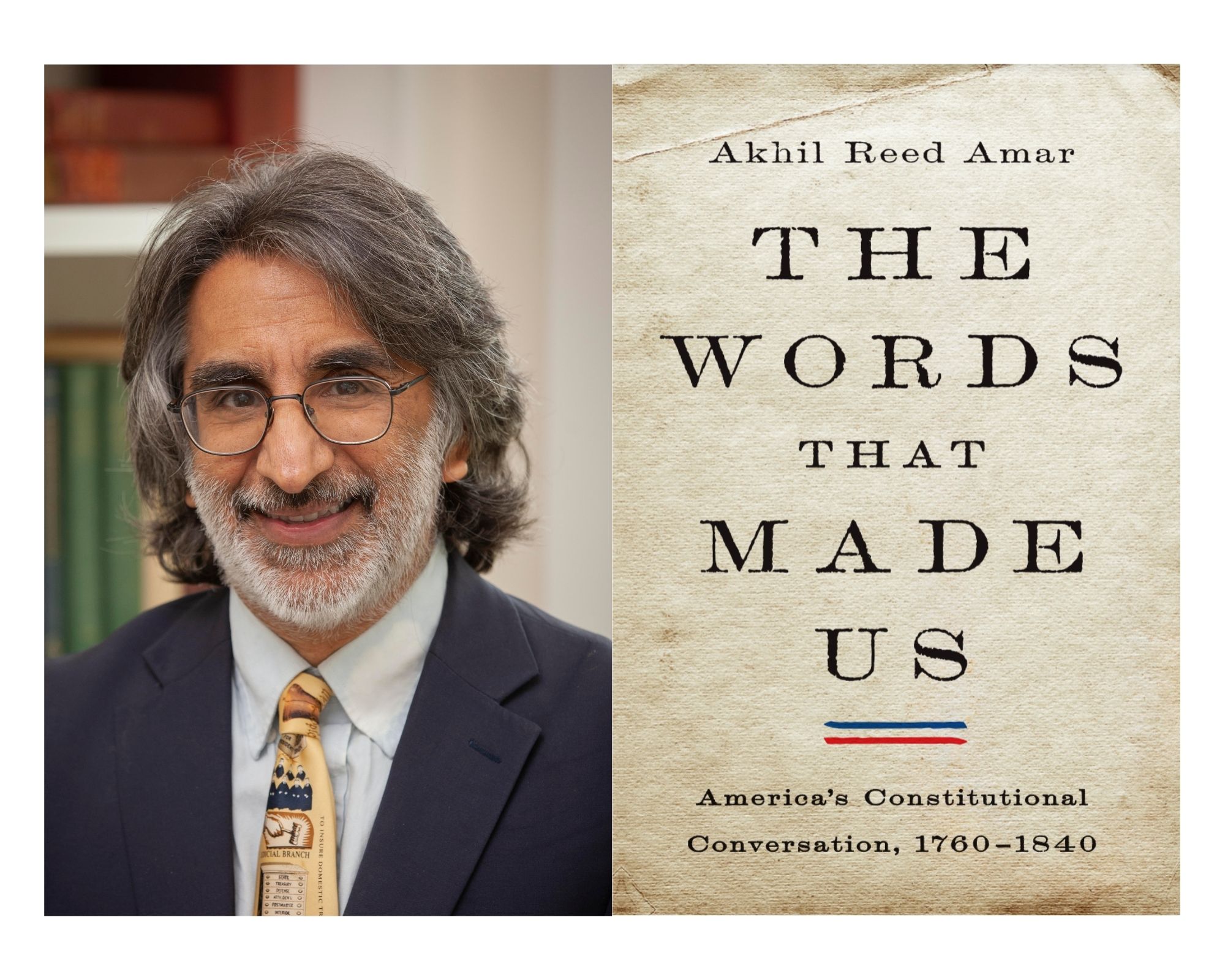The Soul of the First Amendment “addresses legal issues from the adoption of the Bill of Rights through recent cases such as Citizens United” and “examines the repeated conflicts between claims of free speech and those of national security occasioned by the publication of classified material such as was contained in the Pentagon Papers and was made public by WikiLeaks and Edward Snowden” – Yale University Press.
Floyd Abrams is senior counsel in the New York law firm of Cahill Gordon & Reindel LLP and an adjunct professor at New York University School of Law. He has argued frequently in the Supreme Court in First Amendment cases ranging from the Pentagon Papers case to Citizens United. His clients have included the New York Times, ABC, NBC, CBS, CNN, The Nation, Reader’s Digest, Mediaite, the Brooklyn Museum, and many others. Abrams has taught at Yale Law School, Columbia Law School, and, for fifteen years, as the William J. Brennan, Jr., Visiting Professor of First Amendment Law at the Columbia Graduate School of Journalism. At Yale Law School he has founded the Floyd Abrams Institute for Freedom of Expression, which promotes freedom of speech and of the press.
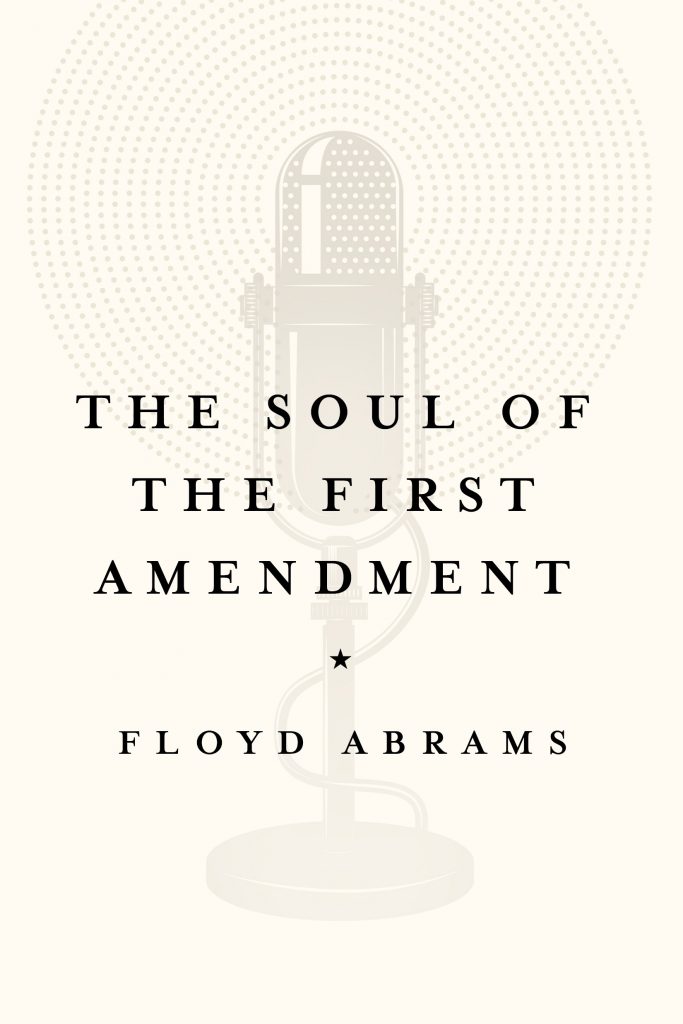 Authors Share Excerpts on Free Speech:
Authors Share Excerpts on Free Speech:
Floyd Abrams and The Soul of the First Amendment
Excerpted from The Soul of the First Amendment, by Floyd Abrams. Copyright © 2017 by Floyd Abrams. Excerpted by permission of Yale University Press. All rights reserved. No part of this excerpt may be reproduced or reprinted without permission in writing from the publisher.
From Pages 10-12
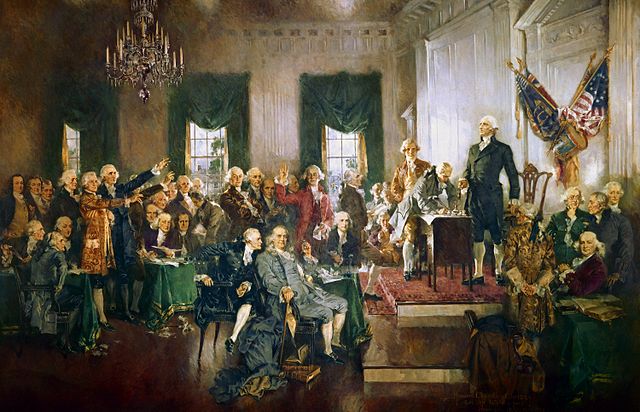 What is most striking today when reading the debates over the adoption of a bill of rights is that while there was fiery disagreement about whether to adopt such a document at all, little of it appears to have been about what those rights were. Instead, the debates focused almost exclusively on whether it was necessary or even useful to add to the Constitution as it had been drafted in Philadelphia, either in its text or separately as amendments, any list of prohibited government actions at all. In the end, those who believed that without a bill of rights the newly empowered federal government might well overstep its bounds into areas of personal liberty carried the day, and what would eventually be viewed, as historian Joseph Ellis put it, as the nation’s “secular version of the Ten Commandments” became binding law.
What is most striking today when reading the debates over the adoption of a bill of rights is that while there was fiery disagreement about whether to adopt such a document at all, little of it appears to have been about what those rights were. Instead, the debates focused almost exclusively on whether it was necessary or even useful to add to the Constitution as it had been drafted in Philadelphia, either in its text or separately as amendments, any list of prohibited government actions at all. In the end, those who believed that without a bill of rights the newly empowered federal government might well overstep its bounds into areas of personal liberty carried the day, and what would eventually be viewed, as historian Joseph Ellis put it, as the nation’s “secular version of the Ten Commandments” became binding law.
Inevitably, the language chosen for the Bill of Rights has been subject to multiple, sometimes conflicting interpretations. In addition, the passage of time has led to disputes about topics that would have been inconceivable in the eighteenth century. Who, for example, can speak with confidence today about what the Framers would have thought about net neutrality, videogames, or algorithms?
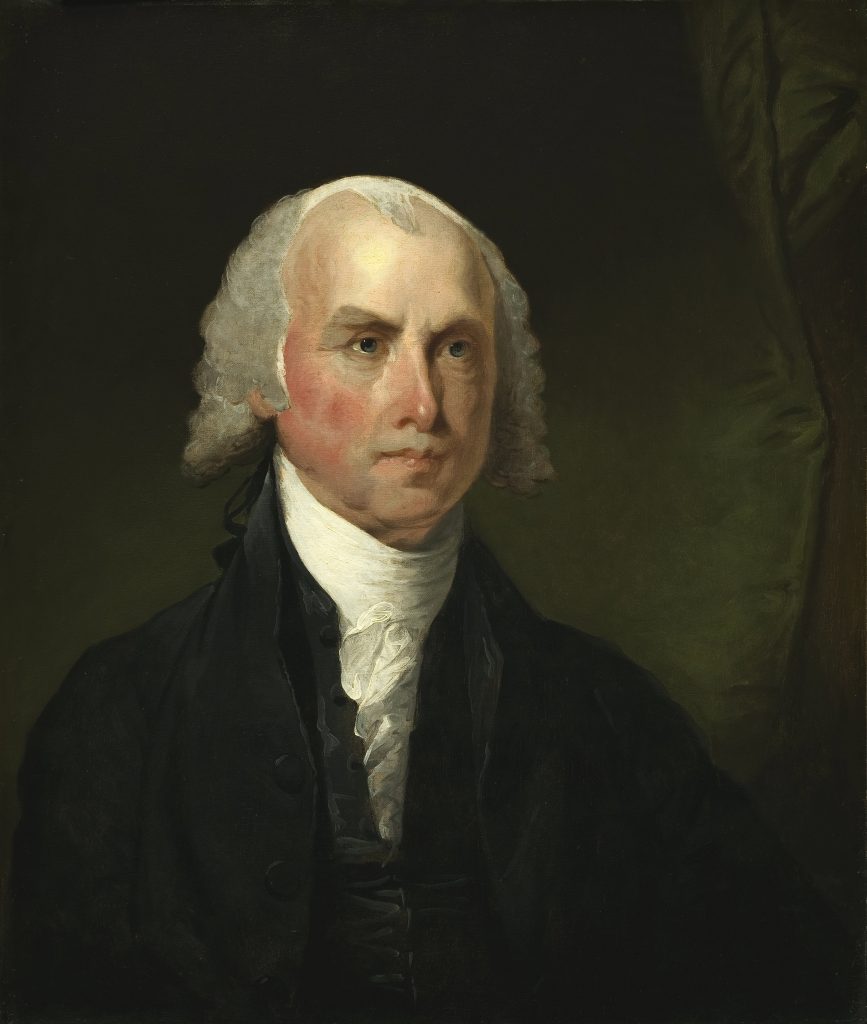
James Madison
One view of the Framers, however, could hardly be clearer. The “great object” of bills of rights, Madison observed when he first introduced the Bill of Rights in the House of Representatives, was “to limit and qualify the powers of Government, by excepting out of the grant of power those cases in which the Government ought not to act, or to act only in a particular mode.” “Courts of justice,” Madison optimistically predicted, would serve as “impenetrable barriers” to violations. Later, in the debates over the adoption of the Bill of Rights, Madison went further. With its adoption, he said, “the right of freedom of speech is secured; the liberty of the press is expressly declared to be beyond the reach of this Government.” The imposition of strict limits on governmental authority over religion, speech, and press was the central purpose of the First Amendment. It is what the First Amendment is about.
That theme has been repeated by jurists with the widest divergence of views on other matters.
Supreme Court Justice Robert H. Jackson, writing in 1945, put it this way: “The very purpose of the First Amendment is to foreclose public authority from assuming a guardianship of the public mind through regulating the press, speech, and religion. In this field, every person must be his own watchman for truth, because the forefathers did not trust any government to separate the true from the false for us.”
Justice Hugo Black, writing in 1961, observed that “the very reason for the First Amendment is to make the people of the country free to think, speak, write and worship as they wish, not as the Government commands.”
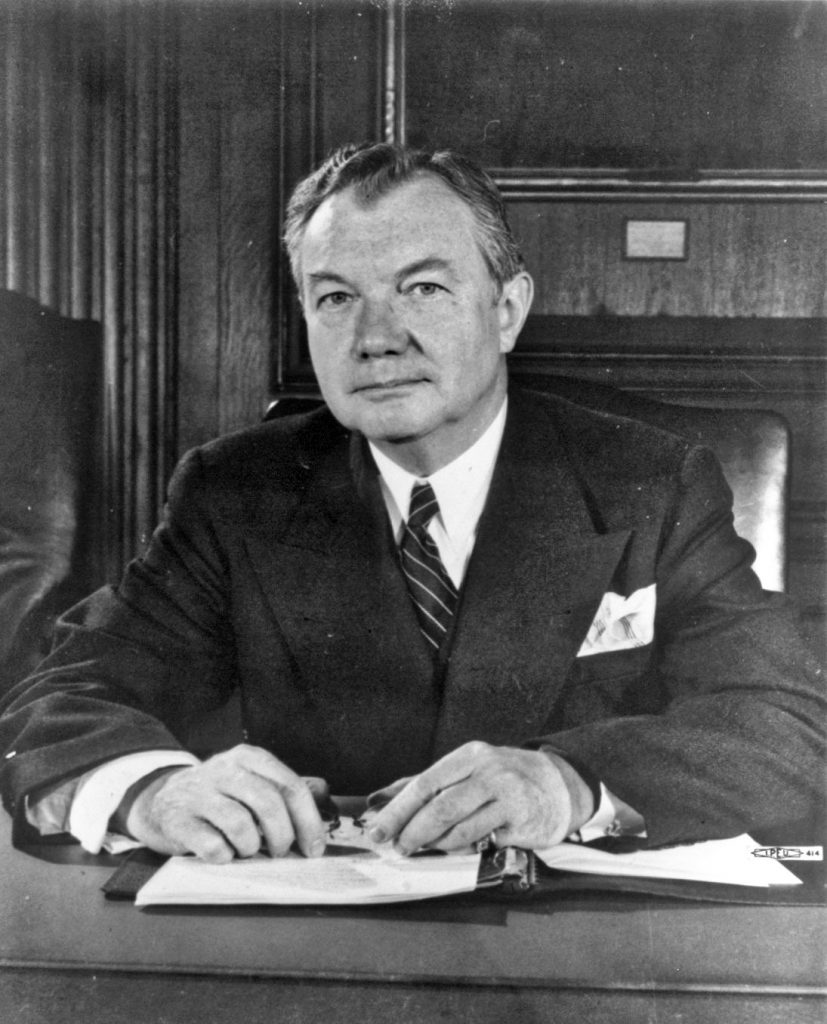
Justice Robert H. Jackson
Justice William O. Douglas, in 1973, stated that “the struggle for liberty has been a struggle against Government. The essential scheme of our Constitution and Bill of Rights was to take Government off the backs of people.” Justice John Paul Stevens observed in 1985 that “the First Amendment was adopted to curtail Congress’ power to interfere with the individual’s freedom to believe, to worship, and to express himself in accordance with the dictates of his own conscience.”
Justice Anthony Kennedy wrote in 2002 that “First Amendment freedoms are most in danger when the government seeks to control thought or to justify its laws for that impermissible end. The right to think is the beginning of freedom, and speech must be protected from the government because speech is the beginning of thought.”
Chief Justice John Roberts, in 2010, stated that “the First Amendment protects against the Government; it does not leave us at the mercy of noblesse oblige. We would not uphold an unconstitutional statute merely because the Government promised to use it responsibly. So clearly established is the notion that the Bill of Rights in general and the First Amendment in particular exist to protect against the government that it would be easy to fill pages with similar quotations.
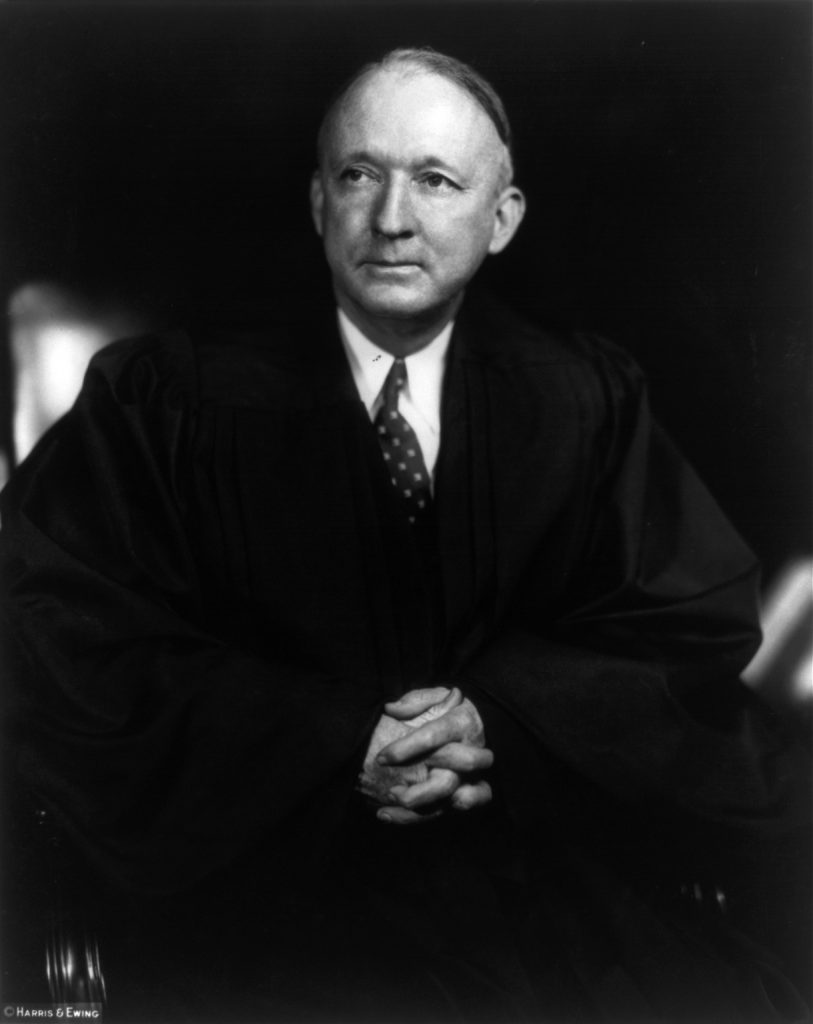
Justice Hugo Black
Pages 35-38
Suppose the views of those who attended the Constitutional Convention in 1787 that no bill of rights was needed or advisable had arrived the day. What sorts of expression would have been lost?
One way to tell is by looking at cases in which government limitations on speech have been held to violate the First Amendment. For example: if there had been no First Amendment in effect in 1943, a child whose religion forbade her from saluting the American flag could have been expelled from her public school for “insubordination” until she did so. If there had been no First Amendment in effect in 1964, southern white juries would have been free to continue down the path of imposing staggering and company-threatening libel verdicts against national publications such as the New York Times as they reported on the civil rights revolution. If there had been no First Amendment in effect in 1974, theaters that showed the movie Carnal Knowledge could have been successfully prosecuted for violating obscenity laws. More recently, only the existence of the First Amendment has protected controversial and what some find to be disturbing expression ranging from the burning of an American flag as a form of protest, demonstrations close to facilities offering abortions, and the spending of unlimited sums by individuals and corporations in support of or in opposition to candidates for public office.
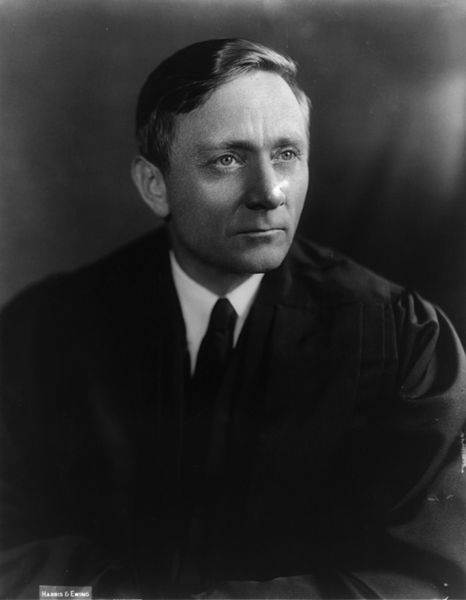
Justice William O. Douglas
Consider another counterfactual alternative. Suppose the Bill of Rights as a whole and the First Amendment in particular had been phrased differently. Suppose, instead of stating in unambiguously negative terms that Congress could not abridge freedom of speech or press, the First Amendment had been phrased affirmatively. What if it had been written this way: “Every person shall have the right to freedom of thought, conscience, and belief. Every person shall have the freedom of speech and expression, which include the freedom of the press and other media.” Or, more simply, this way: “Citizens are guaranteed freedom of speech, of the press, of assembly, demonstration, and association.”
We know that Madison would have been delighted to have included a reference to freedom of conscience in the Bill of Rights. He fought hard and unsuccessfully to have just that concept included. As for saying that “every person” or “citizen” was entitled to protection of freedom of expression, if any such language had been adopted as the First Amendment, it might well have been interpreted by the Supreme Court to have barred not just the government but private entities—Google and Facebook, for example—from limiting freedom of expression. That First Amendment might well have been read to oblige the government not only to avoid abridging freedom of speech, free press, and the like by its own conduct but to protect it against all comers.
But we should not too easily be misled into thinking that the language of a constitutional provision will necessarily guarantee its realization in practice. The first articulation above is from article 19 of the constitution of Eritrea, the second from article 67 of the constitution of North Korea. They rank, in a recent assessment by Reporters Without Borders, as the two most brutally repressive states in the world, with neither permitting any expression of views inconsistent with that of their governments and both rooted in the notion that all media outlets are nothing but government mouthpieces. The freedom-protective language in their constitutions are empty conceits, see-through camouflage of nations that are rooted neither in any concept of law nor in that of individual liberty.
